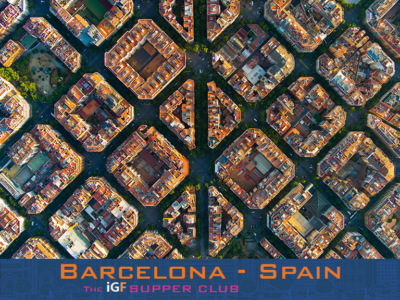Founded in 2016, Fast Track is an award-winning iGaming technology and service provider on a mission to simplify online gambling operations, writes Lauren Harrison.
Known as a leader in the AI space, the company, led by CEO and Co-founder Simon Lidzén, focuses on creating disruptive innovations that solve operator challenges – while retaining unique brand identities and that vital human spark.
To find out more, Lidzén recently met with iGamingFuture to discuss his company’s impressive growth, with particular reference to potential new applications for AI, and his vision for our industry’s future.
As always, iGF’s Head of Content Curtis Roach was on hand to ask the searching questions in another compelling tête-a-tête about the very future of iGaming.
This is one not to be missed. Read on.
Fast Track has been a leader in the AI space for some time. Looking forward, what will be some of the more advantageous potential applications of AI that are yet to be realised or implemented?
“I think we are still in this wave of AI where we are limited by our imagination, and this is grounded in what we already know and see.
“Technology is progressing faster than our ability to adapt, so for the foreseeable future, we’ll continue applying AI to overcome bottlenecks in our everyday lives. For example, using AI assistants and related tech to remove pain points and speed up the time it takes to execute ideas and visions.
“From the Fast Track perspective, the most exciting aspect is that AI empowers individuals who have creative ideas, but cannot execute them or dig deeply enough into the data.
“Tasks like querying databases or running complex data-mining exercises often create barriers – but natural language interfaces are starting to remove those.
“Soon, you’ll be able to just say: ‘Tell me about this player’ or ‘show me this opportunity’, and instantly connect and explore all the data within Fast Track across multiple dimensions. That allows operators to reach conclusions quickly, see bright spots in their data, and do feature engineering at scale to deliver one-to-one AI-driven experiences.
“We’re investing heavily in natural language because we believe in it for the long term.
“I see the role of CRM as evolving into something more like a creative director role, where you don’t need coordination across multiple teams to test an idea. [An individual] will be able to experiment, test concepts, and immediately model the results.
“Ultimately, I think the real potential of AI is its potential to reshape consumer behaviour. But this is also tricky to discuss, because we don’t yet know exactly what this will look like.
“Think about when smartphones first came out. Initially, people only thought of them as just phones with touchscreens, but then apps, social media and an entirely new ecosystem evolved, things nobody imagined at the beginning. AI will generate similar seismic shifts.
“One thing that’s already very clear is that loyalty today is about relevance. And relevance comes from building the right information architecture with data, then making it accessible and ensuring it flows properly. Once that is achieved, you can act on it and unlock creativity and innovation at speed.”
Singularity is often seen as a tipping point in the context of Fast Track and CRM. How close are you to achieving your initial vision of building a self-learning engagement platform?
“Our vision as a company has always been to create self-learning technology. But it’s not just about the system learning on its own. It’s also about being able to fully rely on a platform where you take your CRM strategy, load it in, and then trust the platform to operate within the objectives and boundaries you’ve programmed. We’re closer to achieving this than we’ve ever been, but there’s still a long way to go.
“Looking back, one of the first challenges Fast Track took on was rethinking the architecture of CRM systems. This turned out to be the right call.
“Traditional CRM systems are very limited, designed to target one group of players, one campaign at a time, and with a single daily data transfer. But that kind of set-up doesn’t cut it anymore, especially in operating environments where relevance rules and real-time interactions are everything. So we started from scratch and built differently.
“We created a real-time architecture where player data and profiles are updated instantly with each action.
“Additionally, our AI models analyse behaviour and preferences in real-time, providing insights and actionable information.
“We also built a bank of rewards, promotions and messages ready to go. To bring these two areas together, we then focused on our singularity engine, which matches the player and experience in the most effective way.
“We’ve also invested in Greco, which is our gameplay risk-management system. This ensures that we’re not firing promotions at players where it’s not appropriate. And we’ve developed an AI-ready gamification layer to overcome the limitations of traditional bonuses and engagement strategies.
“Now, with our natural language capabilities–which we’re rolling out in the coming months–, we’re removing bottlenecks around creation.
“So yes, we’re getting close, not very close, but close enough that the first phases are now a reality. The self-learning elements are already present, but over the next year or two, we’ll be more closely integrating them to work simultaneously and holistically: Building a true self-learning system that orchestrates the whole ecosystem.”
AI has the power to deliver personalised experiences at scale, but without a human touch. How difficult will it be to find a balance between automation and authentic customer interactions?
“Our goal is not to remove humans from the process. In fact, the human element is key to building a successful brand identity.
“Every operator and brand is unique, and these differences are exciting and important. Brands have their own culture, markets, products, and values. This means you cannot just plug in a single one-size-fits-all CRM system. Humans need to shape it and provide authenticity for consumers.
“The role of AI is to speed things up, but the artistry, the creativity, and the original spark are still human. In the past, effort was often equated with value–how many campaigns and promotions were run, how much content was created–but now it’s about relevance and resonance.”
How closely linked is the evolution of AI and the future growth of Fast Track? Are the two mutually exclusive?
“I’d say the two move in tandem. Fast Track has benefited from technological shifts because we are curious and approach them with the mindset of trial and error. We’ve also benefited from good timing.
“We don’t chase every avenue, sinking money into ideas where we cannot see tangible results. Instead, we live in the current and take advantage of technology as much as possible to solve the problems we see.
“This approach is pragmatic and focuses on solving today’s problems with the tools available rather than investing in hypothetical futures.
“Our growth is about alignment. As AI evolves, new avenues are naturally created, and when this happens, we’re quick to adapt and create new solutions that solve complex challenges, but we’re grounded in the here-and-now, letting things evolve naturally and responding.”
Editor’s Note:
AI may be rewriting the rules and offering seemingly endless possibilities for innovation, but Fast Track isn’t chasing every avenue. Instead, its focus is on smart automation that solves real operator challenges, in the present.
For Simon, the mission is clear: Build self-learning systems that retain and highlight brand identity, while freeing-up operators to focus on what they do best – create great products.
In his view, automation is about removing bottlenecks, allowing operators to experiment easily, and speeding up usually resource-intensive processes, but it does not include stripping away the all-important “human spark”. Humanity remains vital to delivering authenticity.
So what does the future look like, and what’s the bigger picture?
Simon believes AI will cause seismic shifts in consumer behaviour – it’s a game-changer as big as the creation of smartphones and prediction of its likely impact is complex..
With this in mind, he advocates that the best strategy is to stay grounded. Be adaptive to new technologies. And let innovation evolve naturally.
By following this incremental approach, Simon believes even the most seemingly insurmountable challenges will soon have a solution.
Fast Track will unveil its new AI-driven natural language platform on 2nd September during its annual Fast Track House event in Malta. The launch will also be streamed live online from 4 PM CEST, giving the iGaming industry an exclusive first look at the future of player engagement.




